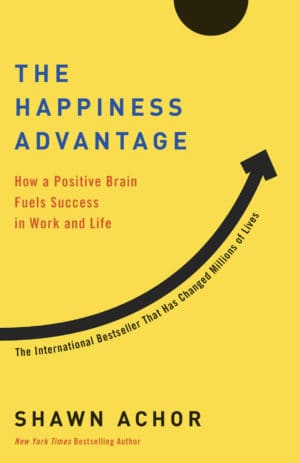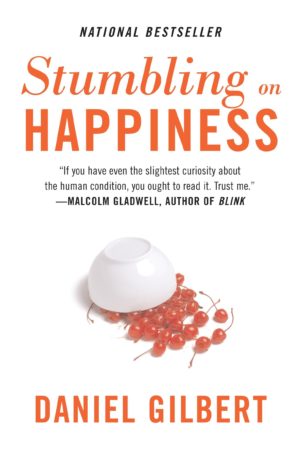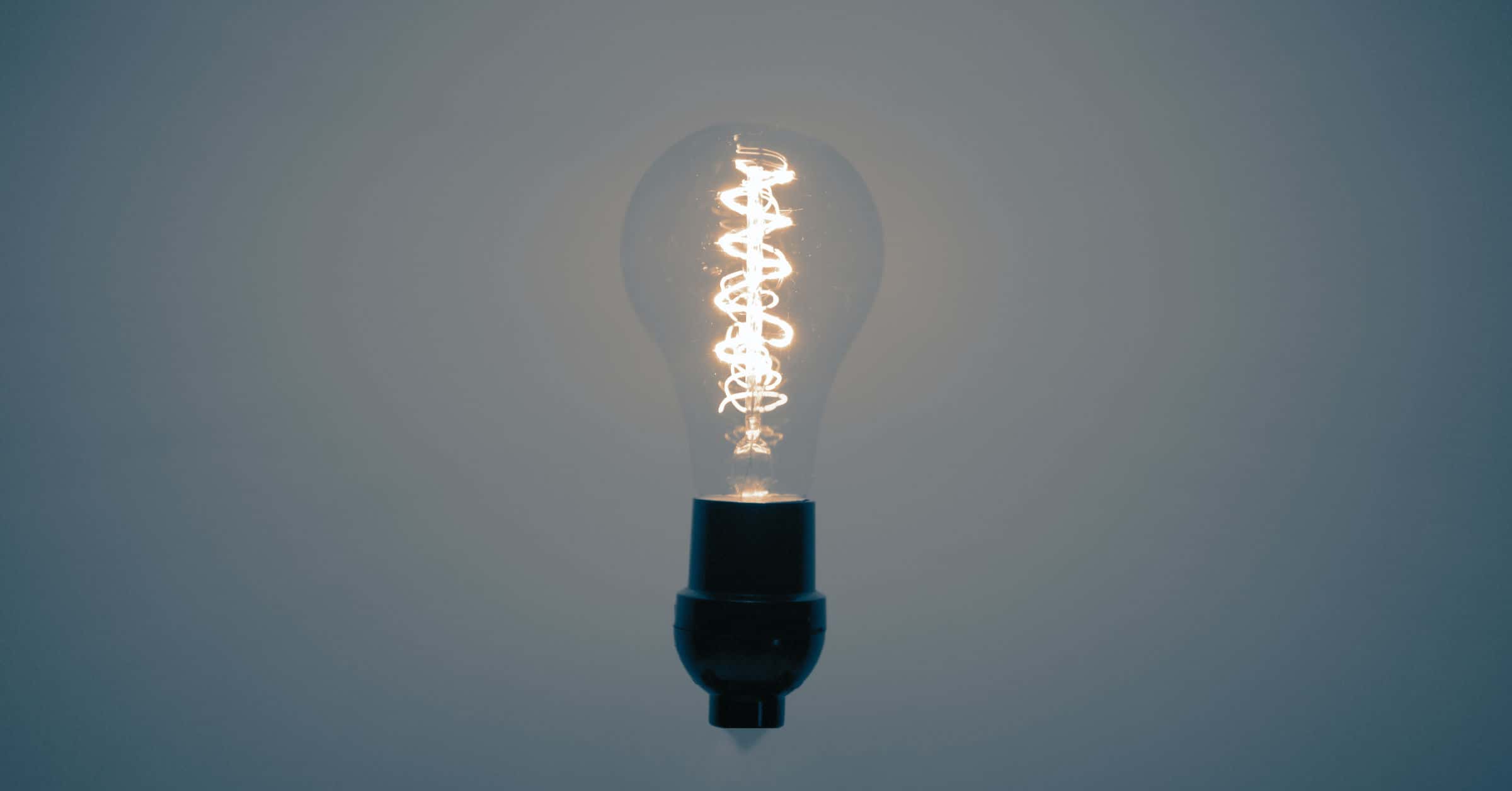Good morning! I tell you what, this Monday I am on fire. I had a great ten days of relaxing time with family, staring at ocean blue waves, that were so clear you could see the bottom 35 feet down. We ate some of the greatest seafood you could imagine. Palm trees, nice salty air breeze, rode ATVs through one of the most wonderful-looking ranches with valleys, so green you couldn’t paint them with a brush if you had to.
Today we’re gonna talk about something that is lacking I think in our world. Particularly in our country. We’re gonna talk about happiness. And today we’re gonna fill in a few moments of your day by helping you be a bigger, better, and bolder you on these Monday morning moments of motivation.
Happiness is something that eludes many of us. For a country that has all the opportunities in the world, we seem to be lacking in happiness in our country. It’s not because of the fact, I don’t believe that it’s being sought. I do believe we all want to achieve happiness. But I want to say that it’s probably in the way we’re approaching it. You know on this day and age there are others seeking to live in the United States of America, take advantage of all of the liberties and freedoms we enjoy, and they are coveting some of these freedoms and liberties. And we in America are having a difficult time finding happiness. So allow me just a few moments this morning to share with you my three strategies to gaining and retaining happiness.
You see, simply gaining happiness on a temporary basis is not that useful. Sure it serves the purpose for the day or two days, or I’ve even heard people say I’m most happy when I’m on vacation. Well, I’m gonna show you how you, today, through this podcast can gain happiness and that you can have that happiness on a permanent basis throughout your life no matter your circumstances. I am that confident if you just implement these three simple strategies today, every day, you’ll find happiness.
So let’s talk just a minute about the disruption of last week’s episode. You know disruption in Episode 16 was all about things changing, all about us in our world. I mean they are changing on a daily basis, if not an hourly basis. And some of this disruption is causing a considerable amount of concern and anxiety to everyone around us. You know, I see it daily where some of our clients don’t like change. And I’m helping them understand that the only thing constant in life is change. Right?
So today we’re gonna build on the strategies of this disruption to increase and retain happiness in your life. See, perspective is the key to facing any challenge. If we allow the events of the day to overwhelm us, then the day rules you. However, by invoking intentional happiness in your life, your outlook and perspective becomes more compelling. So today I’m introducing two books to you that will inspire and empower you to achieve happiness in your life. These two books reinforce the three strategies that I’m giving you today. And help give you some additional tactics when other situations arise, that cause great anxiety for you.
The first book, The Happiness Advantage by Shawn Achor, has been a great reference manual for me to introduce the topic of happiness to many people I meet. This book has been around a few years and I have used it numerous times to reinforce a discussion, to provide people guidance, to help give some positive outlook to people as to why they’re not happy in their situation. You see this to me is kind of a reference manual. And I use it in such a way that I can go in for a few seconds, and if you’ve seen my copy of it, man I have highlighted, I’ve dog-eared pages, I’ve done everything I can to show this is a desk reference manual for me. But the premise from the book is the foundational belief that when we are happy, when our mindset, and our mood are positive, we are smarter, more motivated and thus far more successful. Just like the sun and planets. Happiness is the sun, it’s the center of all of our being, belief and activity and success revolves around it.
Defining Happiness In Your Terms
So the first step you have to do is define what success, what happiness in your terms means. You know, there was a widow, many years ago, worth several millions of dollars. However, the widow could not find happiness. No matter how she tried with all of her means, properties, sufficient income to take care of more than her needs, she could not find happiness. So we discussed in great detail as to what her upbringing was like. Well as you could imagine, she was raised during The Depression here in the United States. It was during that time, The Depression, that many families, suffered terrible losses of property, lack of funds for such basic needs such as clothing, and food, or medical care. It was a devastating time in their lives.
This type of thinking, or scarcity thinking as I call it, is what was embedded in their minds as children, and never overcome as adults. She had done wonderful things with saving her money. She lived in a modest home, she drove a reasonably priced car. Her clothing was of good nature, she had good medical care, she had all the trappings of what we would consider to be a successful person, but she didn’t have happiness. And you see, to me success, void all the happiness she’d have, is not really success. To me it’s most important that you have happiness first, and the success will be derived from those circumstances.
You see, solely relying on wealth and money to bring happiness is like attempting to breathe while swimming underwater without scuba gear. And yes, there’s oxygen in water, you know us humans, we have to breathe all the time, right, this is what we replenish our brains with, this oxygen going through the blood, through our circulation. You see fish find the oxygen within water, but humans are not supplied with gills, that convert the water molecules to oxygen for processing by the body. I don’t want to say too much about this to embarrass myself, but let me just say, while on our recent vacation with our family, we were embarking on a coral reef snorkeling adventure. Man, we were pumped. We’d been snorkeling many times. I would say I’m not an expert by any means on snorkeling, but I did learn two important things while on this particular snorkeling adventure. Note number one, when snorkeling, always be aware of the height of your snorkel and the depth of your head in the water. This brings me to note number two. This is where I proved that humans can’t digest salt water or convert it to oxygen. It looked to me like I was blowing water out of that snorkel, came up coughing, hacking up sea water, oh it was a terribly funny incident for my children to enjoy, not so much for me. I realized too that we can only live in the circumstances that we can control.
By living in circumstances outside our control, i.e. that water’s going to be salty no matter what I had wished for, I needed to learn to adapt to that environment. I couldn’t change it so I must adapt to it to find my happiness. So my secret, you guessed it, just hold my breath quite a bit, once I’ve had a good breath of air, hold my breath and go down and view that beautiful coral reef with species of fish, I’ve seen dolphins, we swam with turtles, all under the water. The scenery never was better. It was beautiful. I do understand more clearly now how my friends that scuba dive are encouraging themselves, they like to go every day because it’s such a different world under the water, then what we have on top.
But you know one of the things we need to learn is is that money and wealth do not bring happiness, but let’s define what happiness could be. One of the things I define my happiness is, I learn by falling down. You guessed it. What if we as children, and our mothers and dad were teaching us as toddlers to walk, and the first time we fell down, what if your parents said, “well, you know it’s ok just let him crawl on the ground, he’ll be alright. I hate to see him fall down”. But that’s not what good parenting’s about. They know we want to be successful in learning to walk and assimilate to society and so forth. They allow us to fall down hundreds if not thousands of times. And every time we hit the ground we hop back up and we attempt it again.
The human brain is an extremely powerful tool. However, to invoke its learning capabilities, one must remember the pain of failing at some point. You see, what people call failure is not always failing. A failure to me is a learning opportunity. It doesn’t mean I’m failing, it means I have learned something from the opportunity. You see the brains only focus is to keep the body alive. It is pure survival mode 24-7. It tells you when to get out of danger. It gives you a fight or flight symptomatic approach, in other words, should I stick around for the danger and your brain is going no let’s leave and be preserving of our life.
You see to increase knowledge though means to fail more frequently. No I didn’t mispeak, you heard me correctly. To increase knowledge means to fail more frequently. And no one likes the pain of failure, but boy we certainly enjoy the knowledge gained in later years. I know what you’re thinking how does this give me happiness to go around failing? You see, paradigm shifting inventions in our lives have come about because of the inquisitive minds of people who failed achieving success in the effort before. You know for example, I always quote Thomas Edison. He is most intriguing individual to me. Thomas Edison “failed” an estimated 6,000 attmepts to create a lasting filament for the light bulb. Now do you think that Thomas Edison was a happy person? I certainly believe he was very happy when he was working within his laboratory and utilizing his unique ability. His curiosity to make things better for life on this planet. I don’t believe after about two tries, if Edison had said, “well, there’s no way to make this filament function right, so I guess I’ll just quit and we’ll keep lighting candles and gas lamps the rest of our lives”. That’s not how this works. To be truly happy he put himself in history by developing the filament that we know today as one of the greatest inventions to affect our lives.
The 20-Second Rule
Jim Collins, the author of Good to Great, reminds us that “we are not imprisoned by our circumstances, our setbacks, our history, our mistakes, or even staggering defeats along the way. We are freed by our choices.” We can either adapt, learn from that one instance of failure, and build upon those learning times that we then seek a higher plane of knowledge. And once we seek that then happiness will be ours. Because now we have more knowledge then we had prior.
You see, building good habits that help you gain and retain happiness is required to live a fulfilling life in my opinion. You know, one tool I learned from this book is called The 20-second Rule. This simply means to place those items, that help you develop and sustain action until it becomes subconscious, within 20-seconds of your body. So for example, to form the habit of writing in my journal daily, every night before I go to bed, I lay the journal on the nightstand with an open, blank page and an ink pen staring at me first thing when I wake the next day. Another habit is exercise for me. Man I love the challenge, you know, I probably stay sore six to seven days a week most of the time. And at my age it’s a good soreness. I would rather pay the price of soreness now then pay the mortgage for the incapacity later in life. I’ve seen during this time we were on vacation, many people required to ride in scooters, that had no capability of enjoying the beauty of that countryside because they couldn’t walk. I saw people running, I saw people doing crossfit on the beach, I saw yoga in the studios. These are opportunities to strengthen our bodies. So that we can create a greater happiness for ourselves and our families in the future.
So this habit of exercise for me, I pack my workout clothes and gear in a bag before retiring for the night. And then I place the bag by my bed. You see what I’m doing? I literally must pick up and move the bag to leave my bed and start the day. This 20-Second Rule has helped me adopt new good habits, much easier than most people. Think about it, if I place something only 20 seconds away for me to initiate a habit, then you’re most likely to engage in that habit. If in fact though, I have to get up the next morning, and now I’ve got to pick out the shoes, I’ve got to get the wristbands, or I’ve got to get a towel, I’ve got to get a workout shirt, I’ve got to get this and that, by the time your brain says, “oh my goodness if I’ve got to do twelve steps now, I’ll just wait and do it later”. And procrastination sneaks in, robbing you of the happiness of the day of knowing that you fulfilled something you wanted, which is exercise.
Now I’m not saying that all of you need to go out and exercise everyday, although, most of you listening to this, it wouldn’t hurt, I see a lot of my friends that are going, “oh I just don’t think I can do it”, and I’ve got to be honest with you, I always tell them by looking right straight in their eye with a smile on my face and I say, “you know if you think you can or you think you can’t, you’re going to be right”. What I’m saying is is that if you’re not thinking that it’s possible then you’ve talked yourself out of the opportunity before you’ve even moved one foot in front of the other. So think about the 20-Second Rule, let’s work on that this week.
The second book on happiness that I recommend is titled, Stumbling on Happiness, by Daniel Gilbert. One of the chapters that impressed me particularly was the one on “The Power of Prefeeling”. You know, this approach to decision making isuncomfortable for many people. Prefeeling is the brain’s imaginative, emotional capabilities at work instead of the logical thinking associated with the brain’s activities. So for example, the brain regulates its energy needs for processing and certain predetermined priorities. And scientists have studied this. And this simply means we can’t see or feel two things at once. So when you ask your brain to look at a real object and an imaginary object at the same time, our brains will typically grant the first request and turn down the second. For example, you cannot easily imagine a penguin when you are busy inspecting an ostrich because vision is already using the parts of the brain your imagination needs.
What does this have to do with happiness you ask? Everything! If you are so consumed by the business of the day, performing menial tasks for the sake of your big goals that move you toward happiness your brain has no or very little capacity to grant your happiness. You are the literal hamster on the wheel in my opinion. See to learn from but don’t live the life of someone else. I have mentors that have been instrumental and critical to me in my professional and personal growth. The secret for me, the student, was to learn the success trade strategies, habits, etc, of the mentor, the teacher, without becoming another person. In other words, I had to remain me, that unique individual that on one else could be on this earth, but emulate someone else or their mannerisms and it’s flattery to the teachers or mentors. However, you are designed to be you. You’re the only you on this planet, you are unique to everyone else on this planet. The billions of people, there’s not an exact replica of you that was naturally created.
So, happiness is defined by your imagination seeking evolution to reality. If you don’t set yourself apart during the day to have time to sit, dream and imagine. Now I know what you’re saying, most of the people in school will tell you, “hey, daydreaming is bad, you’re not focused on your work”. I’ve got news though. I’ve done studies where it shows that daydreaming is the critical component to the creation of a new environment of happiness. What that means is I’m not saying sit down for four hours a day at your job and just daydream, unless you’re a creative artist or someone of that type that has to produce those types of outcomes. What I’m talking about though is, is taking a few moments during your lunch hour or a time before work or after work, set some time of isolation, that you can just simply dream. Find out what makes you happy. Place yourself in some role that you don’t play now, that would give you much more happiness then you’re experiencing today.
You see happiness is not a lasting feeling without intentionality. You must be intentional when seeking and retaining happiness. One of the best methods of assuring your happiness for the long term is to eliminate those things, or people, that rob you of your happiness. Do you know of anyone in your circle of friends or family that are negative, condescending, arrogant, or just plain mean? Why do you wish to hold their company? There is a saying by one of my mentors, Jim Rohn, that “you become the average of the five people you spend the most with each day”. If that is the truth, why would you want to become like the negative friend or family member in your circle of friends or family? Now I don’t think you do.
This environmental control I place in my life is so critical to my happiness, that I have informed my own mother at times that I must leave or she must become more positive during some of my visits. Certain subjects are to be avoided in your life. And you’ve heard me remark that I don’t watch the news from the major news networks. The reasons are numerous, but the most critical is simply the negativity. The joy stealing of the day. See bashing everyone and everything all day long does not leave room in your brain to imagine a world of peace, tranquillity, and ultimately happiness. Instead, I fill my mind with powerful books, and podcasts that help me grow my happiness and retain it for longer periods of time.
Pre-Feeling
Start today deciding that you will make this day different for you. Be intentional in seeking happiness on your terms. So one of my favorite passages by Shakespeare, yea you heard me, I listen to Shakespeare, or excuse me I read Shakespeare I should say, and I have listened to some authors that have quoted his works, but in the great play King Henry VI, Part III, there’s a line that I just love Shakespeare has written a great happiness line. And the line goes something like this, “My mind presageth happy gain and conquest”. So what the king is really saying is that he is thinking or pre-feeling what his future would be that would make him most happy. And in that regard he said happy gain, in other words, he is going to be happier tomorrow than he is today because he is wanting that, he is desiring that, and his brain is working toward that.
Set your mind to achieve the goals you wish by implementing the 20-Second Rule today. You can become the person you wish by focusing on the most important things, or people, you wish to incorporate in your life. It’s that simple. The three strategies are effective and easy to do, or as Jim Rohn again says, “what is easy to do is also easy not to do,” you see it takes your desire. Have you had enough tiresome pain and putting up with all these troubles in life? Let’s do something about it today.
First, define happiness in your terms, specific to your life, how you wish to live. Don’t listen to anyone else, don’t talk to anyone about their happiness, you sit down with a blank sheet of paper and simply say, not I want but I will. That empowers your mind to take this step forward. I will find happiness by doing this. Not I want. If you’re in a wanting mode you’ll always be craving that. Instead, “I will” means I have attained it, I’ve accomplished it.
Second, implement the 20-Second Rule in any area you wish to create improvement through building good habits. Third, use your pre-feeling capabilities of the brain to imagine the ultimate result you wish to achieve, and then re-enforce the decision with logical thinking. Not the inverse. Anytime your brain has a chance to logically think through a situation, it will not allow your imaginative side of the brain to have a say. And if it doesn’t logically add up, does that add excitement to your life? You know many times I tell people, give yourself the option first. To determine if making a good decision would be what you imagine it to be a year from now. Or a month from now. Or give yourself some time frame that you can see in the future. If your brain can imagine it, you are enjoying life. Utilizing this asset you purchased, this location you visited, whatever it may be. Give yourself some time with imagination to determine if your happiness can be found and increased. And then apply your logical brain to making it happen.
Your challenge this week is to review your daily habits and eliminate one negative habit that’s holding you back from realizing your full potential and happiness. I want you to list the bad habit you will replace with the good habit when you go to the bottom of the episode show notes and simply place the bad habit you’re removing or eliminating and the good habit you’re going to replace it with. You may find the two books mentioned in this episode on our website as well under the Resources page titled, “Jimmy’s Top Reads”. Simply click the link for the books and start gaining and retaining more happiness in your life. Isn’t that truly the purpose of living?
You know it is a great time I get to spend with you each week, and next week is going to be another great week for you as you walk through each day. 24 hours under your control. You are the CEO and Shareholder of You Inc. If you like the show, please tell your family and friends about it. Also, we would be very appreciative if you would leave a review of the show wherever you listen to podcasts. Until next week, go out, live your life by design.











